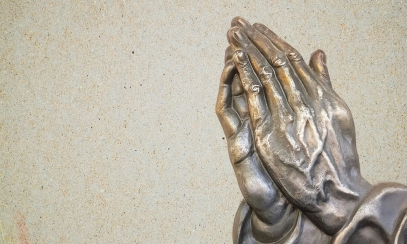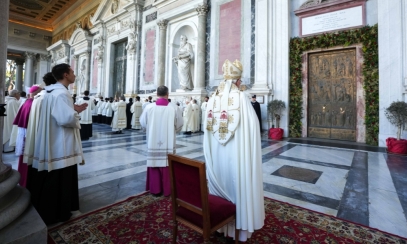
Keeping our Sundays from Becoming Labor Days
Whenever someone asks how I am, one of my most frequent replies is “Good, but busy.” That is rarely more true than it is in September’s back-to-school season.
Whenever someone asks how I am, one of my most frequent replies is “Good, but busy.” That is rarely more true than it is in September’s back-to-school season.
For those whose lives ebb and flow with the school year, as does mine, autumn bursts into our lives with a rapid increase in the events, activities, gatherings and obligations that will again fill our days.
If your days are not directly driven by school life, there is still something about the fall that brings a rapid new rhythm to life as parish activities, clubs, sports teams and community events get underway after a hiatus. After the past several years, this return to community life seems to have an extra urgency about it.
The rapidly filling pages of my calendar are welcome to me since I like the busyness of life. Yet, there is also much to be said for the wisdom of rest.
The commandment to “keep holy the Sabbath,” plus the biblical traditions of sabbaticals and jubilees are reminders that time is sacred. They are reminders that certain times deserve to be safeguarded from the demands of our daily lives.
The Catholic Church proclaims the dignity of work, the value of labor and the importance of treating workers with respect and concern for their wellbeing and that of their families. A critical demand of Church leaders through the decades has been ensuring that workers are free on the Sabbath to worship God and to be with their loved ones. As St. John Paul II wrote in Laborem Exercens, his encyclical on human work, workers have a “right to rest” that “involves a regular weekly rest comprising at least Sunday.” Resting from work on Sunday allows a worker to meet obligations to God on a day of worship.
He went on to say that “man’s work too not only requires a rest every seventh day, but also cannot consist in the mere exercise of human strength in external action; it must leave room for man to prepare himself, by becoming more and more what in the will of God he ought to be, for the rest that the Lord reserves for his servants and friends.”
These words are worth considering as life fills up again. As demands on our time increase, it is tempting — and can even feel necessary — to treat Sunday like any other day. This would let us catch up in a fast-paced world and not fall behind in what seems to be a constant seven-day whirlwind of shopping, working, answering emails and doing the work that just did not get done during the workdays of the week.
School sports and similar activities, as good as they may be in their own right, can split families apart on Sundays as everyone races in different directions. The Lord’s day can all too easily become merely the start of the new work week.
Maybe the start of the new season of busyness is a time to resolve to keep Sundays holy, to keep them sacred and to appreciate the wisdom of a God who rested on the seventh day. In a paradoxical way, this season is launched with Labor Day, the civic (but not meteorological!) end of summer. Since 1894, when President Grover Cleveland signed a bill establishing our national Labor Day, it has been celebrated as a federal holiday honoring the contributions of workers to the social and economic life of the nation.
One of the most significant achievements of the secular labor movement was the drive toward the five-day work week. This should, in theory, free modern laborers for the worship and re-creation of Sabbath rest. In a sad irony, we often surrender this freedom to the temptations of extra work or extracurriculars that creep into our Sundays.
Maybe this year, as I watch my calendar fill up, I will take a special look at those things with which I fill my Sundays to see if they honor God and serve my loved ones. I also hope to do so with appreciation for the ability to do so, something that I know so many people do not have.
I hope you will also have the chance to celebrate each Sunday as a slice of the extraordinary that comes into our ordinary lives.
Lucia A. Silecchia is a professor of law and associate dean for faculty research at the Catholic University of America's Columbus School of Law. Email her at silecchia@cua.edu.



